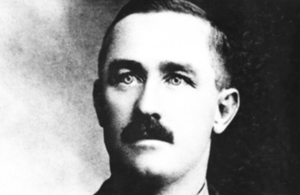WW1 Australian VC recipient Frederick Harold Tubb
The story of Australian First World War Victoria Cross recipient Frederick Harold Tubb.

Credit: Australian War Memorial H06786
66 men from Australia received the Victoria Cross, Britain’s highest award for gallantry, during the First World War. As part of the Centenary Commemorations the people of the United Kingdom marked their gratitude to those courageous men by presenting a bronze memorial plaque to their home country engraved with their names. The plaque is now displayed at the Australian War Memorial. This archive tells their stories.
Name: Frederick Harold Tubb
DOB: 28 November 1881
Place of Birth: Longwood, Victoria, Australia
Date of Action: 9 August 1915
Place of Action: Lone Pine, Gallipoli
Rank: Lieutenant
Regiment: 7th Infantry Battalion, Australian Imperial Force
Frederick Harold Tubb was born in Victoria, Australia, on 28 November 1881. He was working as a grazier on a farm before war broke out. He joined the 7th Battalion of the Australian Imperial Force in August 1914, and landed in Gallipoli in July 1915.
He was one of three Australian soldiers awarded the Victoria Cross for a particular act of bravery during the fighting at Lone Pine, Gallipoli on 9 August 1915. On 8 August , he took over a vital sector of trench at Lone Pine, with orders to “hold it at any cost”. As his citation explains:
In the early morning the enemy made a determined counter-attack on the centre of the newly captured trench held by Lieutenant Tubb, Corporals Burton, Dunstan and a few men. They advanced up a sap and blew in a sandbag barricade, leaving only one foot of it standing, but Lieutenant Tubb, with the two Corporals, repulsed the enemy and rebuilt the barricade. Supported by strong bombing parties, the enemy twice again succeeded in blowing in the barricade, but on each occasion they were repulsed and the barricade rebuilt, although Lieutenant Tubb was wounded in the head and arm and Corporal Burton was killed by a bomb whilst most gallantly building up the parapet under a hail of bombs.
After Gallipoli, Captain Tubb was sent to Britain to recover; and he later rejoined his battalion in France in 1917, when he was promoted to Major. He took part in the Menin Road attack in Belgium in September 1917, where he showed great courage. However, he was mortally wounded by shellfire and died on 20 September 1917 at Passchendaele. He is buried in the Lijessenthoek military cemetery, Belgium.